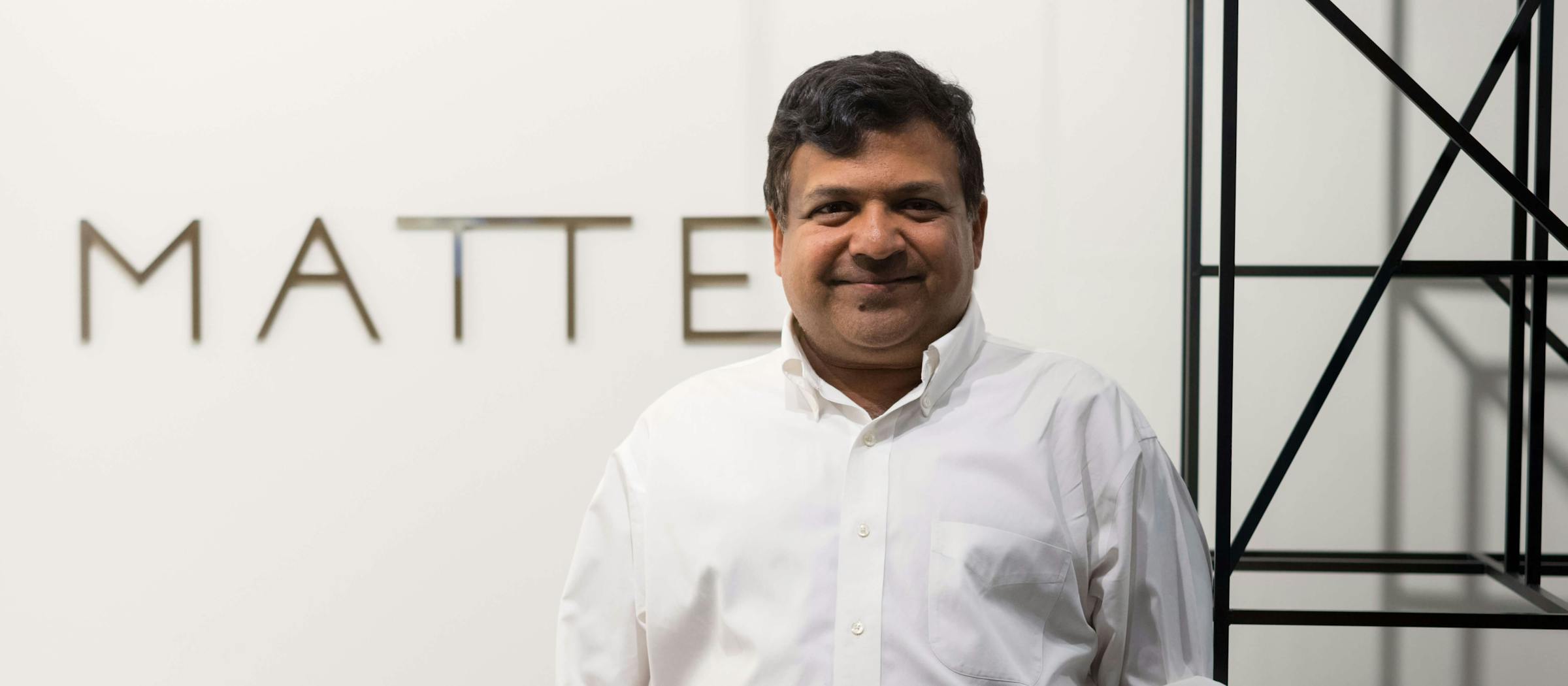Get Rid of Transactions, Focus on Relationships
A Q&A with Dr. Rushika Fernandopulle, Co-founder of Iora Health
Dr. Rushika Fernandopulle is on a mission to reinvent primary care.
He joined us for Tales from the Trenches, which we produce in partnership with Outcome Health and Pritzker Group Venture Capital, to talk about his journey from doctor to co-founder. You can watch the full interview here:
The journey began when Rushika was still an internal medicine resident at Massachusetts General Hospital. On one of many late nights spent entering billing codes at the hospital, a fellow resident turned to Rushika and said, “Every day I lose a little piece of my soul.”
The lament resonated with Rushika. He had gone into medicine to help people. But, operating under a fee-for-service model, Rushika spent more time billing patients than seeing them.
“What we need to do is get rid of the transactions and focus on relationships,” he told the audience gathered at MATTER.
In 2010, Rushika co-founded Iora Health to do just that. Foregoing the fee-for-service model altogether, Iora Health works with sponsor organizations to build value-based primary care practices from the ground up. Iora practices take a patient-centric, team-based approach to care, with an emphasis on population health.
These values extend to the company’s proprietary technology platform, called Chirp. “We’ve designed a clinical management system with a focus on patients – not a billing system,” Rushika said.
We followed up with the Iora Health co-founder to get his perspective on the role of technology in patient care, as well as his advice to healthcare entrepreneurs.
You advised entrepreneurs to pick a few things core to the company’s vision to never give up on, and to be ready to compromise on the rest. What will you never give up on at Iora Health?
Three things:
-
Relationship-based care. We will never try to optimize on visits, RVUs, or 99214s.
-
We will always align the whole operating system to the right care. For example, we use a built-for-purpose IT system, and not the usual EHRs that are built for volume.
-
We will always be consumer centric and treat our teams well.
You mentioned you were part of a healthcare incubator in Iora Health’s early days. How did being a part of an entrepreneurial community benefit you and your business?
Practically-speaking, it was very helpful to have someone else deal with utilities, furniture, and snacks, and to be able to flex up and down in size without commitments, lease, and so on. On the psychic side, not being alone and having other people to meet, bounce ideas off of, and collaborate with was important.
How do your foresee telemedicine technologies affecting the provider-patient relationship, and do you see a role for telemedicine services in Iora Health’s practices?
People focus too much on telemedicine technologies. This technology is trivial. We can already do telemedicine for free through existing tools like Skype, Google Hangouts, FaceTime, and so on. The key is to simply wrap the technology into the workflow. We use video communication technologies all the time, but we don’t need any special tools or make it a big deal. Just do it.
What do you view as the big gaps in technology or services that limit your ability to dramatically transform care? In other words, what would you like to see other entrepreneurs build?
I’d like to see entrepreneurs build (1) tools to engage patients and have them collaborate in their own care, but that can, at the same time, fit into clinical workflow and (2) tools to allow us to get data from everywhere (e.g. other EHRs, labs, census data) easily.
Do you foresee any macro healthcare policies or trends that may put your business model at risk?
Currently, there are lots of forces that freeze out new entrants (for example, virtually all the current value-based payment options offered by CMS (Medicare) requires 5,000 lives to participate). We also keep an eye on trends towards consolidation among providers, and also on consolidation of plans that makes it harder to enter and to diversify.
Our next Tales from the Trenches event is this coming Wednesday, October 18. Livongo CEO Glen Tullman will interview Green Thumb Industries CEO Pete Kadens about how his entrepreneurial journey is shaping the future of medical marijuana. Learn more and register.



